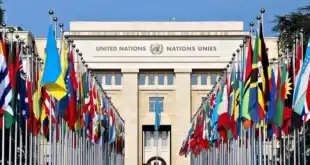One of the key considerations about good evaluation is being able to take a truly objective view of the events and achievements of the project, and to evaluate how the planning and design worked, or did not work in achieving the results, and the true value of the results achieved. This can be a fairly technical process, analysis logic system, and evaluating efficacy, and as such, an external eye can help to keep these assessments rigorous through the use of a technical approach. This objectivity, and critical reflection add a great deal of value to evaluation practice and can add to a stock of knowledge about development programmes and processes.
Why should you invest in an independent evaluation?
There are a range of other good reasons to invest in an independent evaluation. Getting a specialist in to do the work means that you and your team can continue to focus on your tasks, and on implementation. You are effectively bringing specialist capabilities into the organisation, without having to make a longer-term commitment to highly-skilled evaluation practitioners.
Funders will always value independent evaluation. The objectivity and bringing in a specialist who can verify the results helps to ensure that your evaluation findings are sound. As you bring evaluation specialist teams into your workspace, this can add substantial value in building the capacity of your own team, as they are challenged about findings, and as they receive new information about the sector, or about comparable projects. Through this working relationship, you will find and make valuable new connections within the sector.
Finally, good evaluators are usually great at ordering and presenting information and at writing reports. They may present your work in a new and exciting way and can provide you with high-quality products for future advocacy.
Help with your M&E frameworks
With all this in mind, it is clear to see that there is great value in contracting in evaluation services, but especially with complex projects, it is advisable not to wait until the end of the implementation term to consult with them. A skilled evaluator can assist you in designing your M&E frameworks and in selecting the indicators which are most likely to be measurable, and which are most likely to yield the information needed to conduct a thorough evaluation. Remember, evaluators have assessed many similar projects, and may hold good advice on which indicators work, and which might not serve you as well as you think. If you are considering a developmental approach, this will involve ongoing consultation with your evaluation practitioner, as you record milestones and learnings throughout the project.
Evaluation Steering Committee
An important consideration as you plan your evaluation work, includes the selection of an evaluation steering committee, including key members of your team. Evaluation can be trying, especially where your model is contested through the evaluation process, and although this is an opportunity to critical evaluation, it can also become challenging for implementation teams. Maintaining an evaluation steerco which can represent the team, and guide processes of reflection and change, while also ensuring that evaluators understand and represent the niche and nuances of the programme, and that they accurately capture and reflect changes which were significant from the team perspective will certainly add value to the evaluation exercise. Remember that while evaluators may hold certain expertise, it is those closest to the project who know most about the change that took place. Sometimes it helps to view the evaluator’s main role as asking the right questions to find out, of all that has been observed and measured by the programme team, which is the most meaningful in explaining the outcomes and impacts achieved.
Be sure to research your evaluators and select an evaluator or team which has produced work which best fits what you’d like to learn about your own. This is not so much about sector knowledge (although this is significant), as it is about the type of evaluations they conduct, and the methods they have successfully used in the past.



